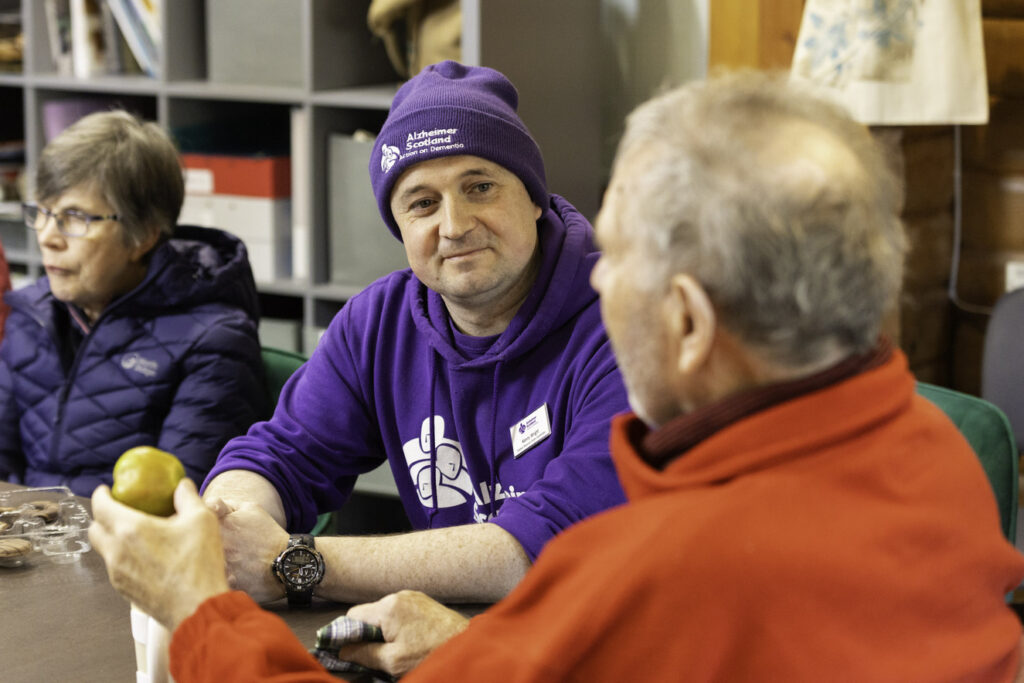Symptoms & diagnosis
Every person with dementia is different. How dementia impacts you depends on which areas of your brain are most affected.
Symptoms of dementia
Early symptoms of dementia can include memory loss and deterioration of other cognitive ability. This is sometimes referred to as mild cognitive impairment. Examples of this include problems with:
- memory loss
- reduced mental acuity
- difficulties with language
- difficulties understanding others
- changes in mood
This can result in difficulties doing daily activities such as:
- misplacing possessions like keys, a purse or wallet
- difficulty remembering words or people’s names
- forgetting to plan or prepare meals
- difficulty remembering appointments
- getting lost or confused outside
Diagnosis and treatment of dementia
If you are experiencing symptoms of dementia, it is very important to be assessed by a doctor. Getting an early diagnosis has many benefits such as earlier access to treatments and medication, person-centred care, advice and support. This allows anyone diagnosed with dementia, and the people close to them, to prepare for the future.
In some cases, an early diagnosis can also mean that the progress of symptoms can be slowed down, allowing you to live well with dementia and maintain your cognitive function for longer.
Diagnosing the type of dementia is also important as it ensures the correct treatments or medications are prescribed.
A timely diagnosis can help you to come to terms with the illness, make plans for the future, and access support and services that can help.
If you have been diagnosed with dementia, you may be feeling a range of emotions. Shock, disbelief and even relief that you can now explain your symptoms can all be natural responses to a dementia diagnosis. If you would like to talk to someone about how you feel, our Freephone 24 hour Dementia Helpline is available on 0808 808 3000 for information, support and advice.
Treatment and medication
While there is currently no cure for dementia, there are treatments for some types of dementia that can help with symptoms and support people with the condition.
In addition to these medications, non-pharmacological interventions such as community activities, counselling and various therapies can help people stay healthy and live well with dementia.
Additionally, scientific research continues to advance our understanding of dementia and ultimately seeks to improve the diagnosis, treatment, and care of anyone living with dementia whilst working towards a cure.
After diagnosis
A diagnosis of dementia can be difficult for the person diagnosed and those closest to them. It can leave people feeling anxious and with a lot of questions about what to do next.
Our Dementia: After diagnosis booklet tries to answer some of the questions you may have after receiving a diagnosis of dementia. Each section looks at a different area of your life and suggests ways to adapt to any changes you may face.
You can download a PDF copy of the booklet here. For external organisations who wish to order bulk printed copies, please contact info@alzscot.org for print and postage costs (minimum order of 100 copies).
Related topics
Types of dementia
Dementia is an umbrella term for more than a hundred progressive conditions. Find out about the most common variants here
I am a carer
Dementia doesn’t just affect the person with the illness. Get information and support to help you, and the person you care for.
About Alzheimer’s disease
Around 62% of people with dementia have Alzheimer’s disease. Find out more about the most common form of dementia.
